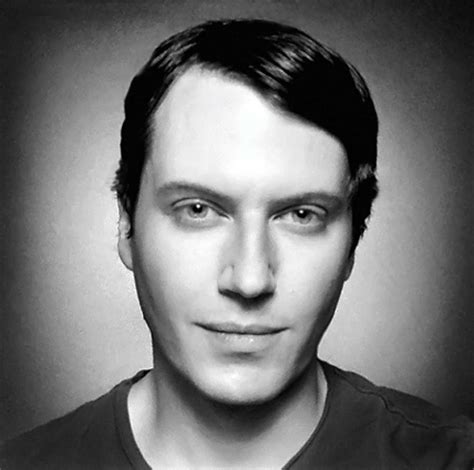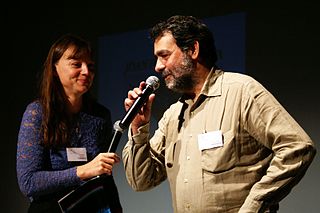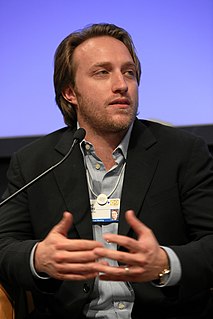A Quote by Joe Lonsdale
In their infancy, startups need geniuses who fit their current tight-knit culture and will iterate quickly as they push towards an ambitious vision - and they need a scaffolding of advisors, strategists, early users, and product-thinkers around these savants to guide them.
Related Quotes
A recipe I've seen work in early-stage startups is a small tight-knit group of passionate people who are obsessed with their vision of how to fix a particular industry. Conversely, teams composed of people with a lot of specialized experience at running a large business are not as likely to do very well in the first year or two of a startup.
Autism is a big continuum, going from someone who remains nonverbal, all the way up to geniuses on Silicon Valley. And some kids are visual thinkers like me. Other kids are pattern thinkers - your mathematicians, your programmers. And there are others, they are word thinkers. Uneven skills. You need to take the thing that they're good at and you need to work on developing it.
Startups need to focus on building a foundation for their company culture early, and then they need to revisit it often. Every time a hire is made, a feature is launched, a Facebook status is updated, a press interview is given, a round of financing is raised, or a meeting is held, culture should be part of the decision-making process.
Photography mirrored the [nineteenth century] will towards rigor, towards defining details, the need for miniscule description, the long-distance optics, for technology at the service of truth, for concepts of credibility, of objectivity, the need to archive, for the consolidation of institutions like the museum, in short, towards a need to control memory.
You've got to have a vision and an intention and that will guide what you do. I call it devotion. Ask yourself, "Is this not moving me toward where we need to be?" I believe that's helpful because a vision pulls you forward and it keeps you focused. A vision for the day, for the week, for the month and a lifelong vision - whatever works for you. And then you govern your activities and your behaviors accordingly.
We don't need no more rappers, we don't need no more basketball players, no more football players. We need more thinkers. We need more scientists. We need more managers. We need more mathematicians. We need more teachers. We need more people who care; you know what I'm saying? We need more women, mothers, fathers, we need more of that, we don't need any more entertainers
Your business should be defined, not in terms of the product or service you offer, but in terms of what customer need your product or service fulfills. While products come and go, basic needs and customer groups stay around, i.e., the need for communication, the need for transportation, etc. What market need do you supply?
To some degree, the critic arises out of that negativity bias in that our brains are oriented towards threat and toward survival. The critic really started as a survivor mechanism in early infancy and childhood when we were trying to navigate our early family system and culture; when we're learning how to fit in so we could optimize that flow of love and affection. It was an internal voice telling us to shut certain patterns and reactions down, that negativity bias that's always looking for what's wrong, looking for the threat.

































